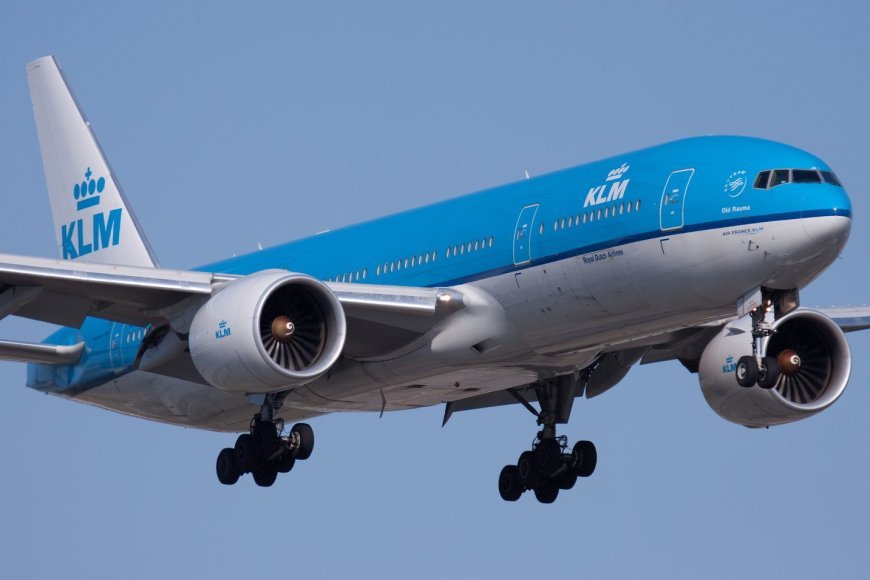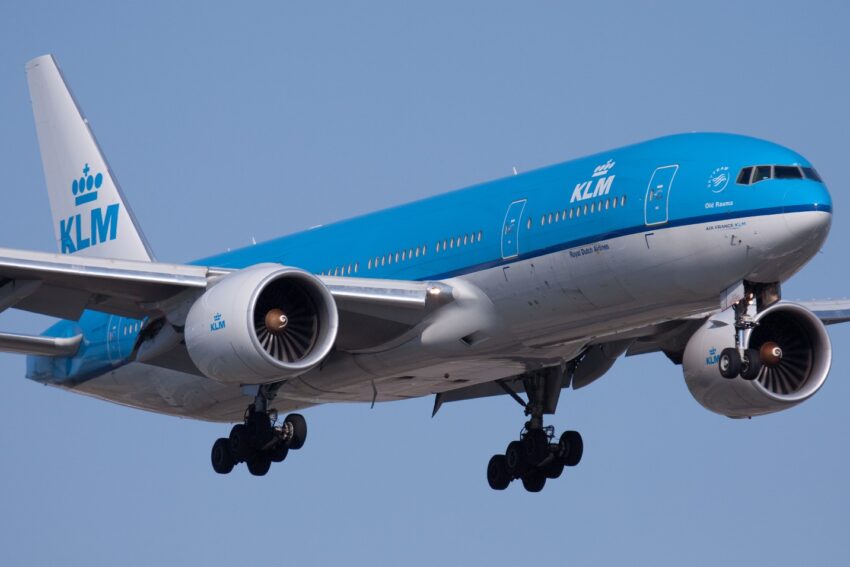KLM Flight KL792 Tackles Fire Emergency Mid-Air on São Paulo-Amsterdam Flight, Everything You Need to Know


KLM Flight KL792 faced a critical fire emergency mid-air during its journey from São Paulo to Amsterdam. The situation unfolded when a portable power bank ignited in the cabin, causing thick smoke to fill the aisle. Passengers, initially startled, were reassured by the flight attendants, who acted swiftly and decisively to contain the fire. Using onboard fire extinguishers and following established safety protocols, the crew effectively neutralized the threat. the flight continued on its planned trajectory. The crew’s intervention demonstrated the importance of compliance with safety protocols surrounding the transport of lithium-ion batteries, as well as the safety of all onboard the aircraft. Such instances bring to the fore the multitude of safety protocols that are instituted, particularly with regards to the use of electronic gadgets and portable power banks.
Incident Overview: Mid-Flight Fire
On KLM flight KL792, passengers were jolted awake when smoke began to fill the cabin. The source of the smoke was soon identified as a portable power bank, which ignited inside a passenger’s carry-on bag. This unexpected fire triggered immediate action from the flight crew. Cabin attendants deployed onboard extinguishers and followed emergency procedures to isolate and contain the blaze.
Despite the alarming circumstances, the aircraft did not need to divert from its scheduled route. The crew’s swift actions ensured that the flight continued safely and the aircraft reached its destination, Amsterdam Schiphol Airport (AMS), without further incident. Although the fire caused a significant amount of smoke, no injuries were reported. However, the incident served as a stark reminder of the risks posed by lithium-ion batteries when not handled properly during air travel.
Safety Measures and Lithium-Ion Battery Risks
Lithium-ion batteries, which are commonly found in personal electronic devices such as mobile phones, laptops and power banks, have become a growing concern for aviation safety. These batteries have been linked to several in-flight incidents due to their potential to overheat or ignite if damaged, improperly stored or subjected to extreme conditions.
KLM Flight KL792’s incident demonstrates the risks associated with the carriage of power banks in the cabin baggage. Stricter aviation safety regulations dictate that such devices cannot be stored in checked baggage due to the significant fire risks posed by their batteries. While the fire in this case was brought under control quickly, the outcome could have been much more dire, especially considering that lithium-ion batteries require swift and decisive action to mitigate their escalating risks.
KLM’s Response and Investigation
After the fire was extinguished, KLM immediately notified the Dutch Safety Board (DSB), which has launched a formal investigation into the incident. The airline is fully cooperating with the authorities as they determine the exact cause of the fire and any contributing factors.
The airline has also issued a reminder to passengers about the risks associated with carrying electronic devices that contain lithium-ion batteries. While this specific incident was resolved without injury, it serves as an important lesson for both airlines and passengers regarding the importance of safe practices when handling electronics during air travel.
KLM has been commended for its crew’s quick and calm response to the fire. The crew’s ability to manage the situation effectively without causing panic in the cabin was key in preventing further complications during the flight.
Similar Incident: Engine Fire on KLM Flight KL877
The fire on Flight KL792 is not the first emergency KLM has faced in recent months. On May 17, 2025, another KLM Boeing 777-300ER, operating flight KL877, experienced a severe engine fire shortly after taking off from Amsterdam Schiphol Airport. The flight, bound for Mumbai, was forced to return to Amsterdam after flames were observed coming from the left engine.
The crew acted immediately, halting the climb and entering a holding pattern to burn fuel, a standard safety procedure to reduce the aircraft’s weight for a safe landing. The flight eventually landed without further incident and emergency teams were ready to secure the area upon arrival. While no injuries were reported, the incident prompted an investigation by aviation authorities.
Similar to the incident on KL792, the swift actions of the crew were critical in ensuring the safety of passengers and minimizing the risks associated with in-flight emergencies. Both incidents serve as examples of the vital role that crew training and safety protocols play in ensuring passenger safety during unexpected situations.
Lessons Learned and Moving Forward
Both the fire on KLM Flight KL792 and the engine fire on KL877 highlight the importance of crew preparedness, quick decision-making and effective safety procedures in aviation. While these events may have caused considerable stress for passengers, the professional handling of the situations prevented further damage and ensured everyone’s safety.
The events additionally emphasize the importance of ongoing training regarding the safe use of electronic devices and lithium-ion batteries during air travel. Personal electronic devices, if stored and handled properly, would lower the chances of causing fires and other incidents.
KLM’s cooperation with the Dutch Safety Board and other aviation authorities will likely yield valuable insights into both incidents. As investigations continue, the airline, like many others, will likely adjust and reinforce safety protocols to prevent similar events in the future.
Conclusion
The fire emergency on KLM Flight KL792, caused by a portable power bank and the engine fire on KLM Flight KL877 both demonstrate the critical importance of air travel safety. These incidents, though alarming, highlight the crucial role of swift action and proper safety measures in mitigating risks. KLM’s professional response, combined with a comprehensive investigation into the causes, reinforces the importance of maintaining strict safety regulations and educating passengers on the potential hazards of electronic devices in flight.
Passengers must understand the dangers posed by carrying lithium-ion batteries and their compliance with all safety protocols in the forefront. The safeguards in place to protect the airline customers, crew and the proactive mitigation of risks by the airline in responding to emergencies will remain fundamental in upholding the aviations industry safety.
The post KLM Flight KL792 Tackles Fire Emergency Mid-Air on São Paulo-Amsterdam Flight, Everything You Need to Know appeared first on Travel And Tour World.






